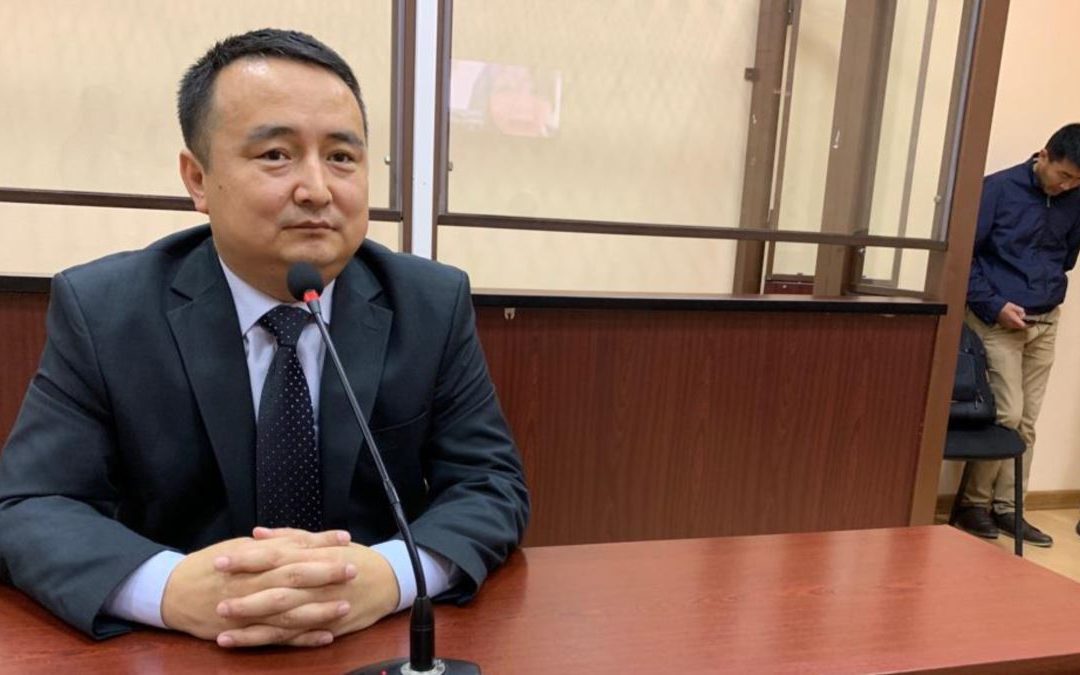Washington, D.C. – Freedom Now is pleased to announce Serikzhan Bilash was released from house arrest on August 16, 2019. Bilash was arrested in March 2019 and faced seven years in prison over his advocacy regarding detention camps in China.
“We are grateful that Serikzhan Bilash has been reunited with his family,” said Freedom Now Program Officer Karl Horberg. “However, we are dismayed that Bilash was coerced into accepting guilt over politically motivated charges clearly designed to curtail his vociferous opposition to the detention of ethnic Kazakhs, Uyghurs, and other ethnic minorities in the Xinjiang region. The disproportionate restriction on his fundamental rights, including a seven year ban on his activism, are yet another stain on Kazakhstan’s human rights record.”
Prior to his arrest, Bilash served as the founder and director of Ata-Jurt Eriktileri, an organization that campaigns for the release of ethnic Kazakhs held by the Chinese government in the Xinjiang Region and supports the relatives of detainees. Bilash and Ata-Jurt are one of the most comprehensive and reliable first-hand resources for information about the Xinjiang camps.
Bilash has been detained by the government since the early morning hours of March 10, 2019, when National Security officers forced their way into his hotel room, injuring him in the process. The officials presented no warrant and provided no justification for arresting Bilash. They put him on a flight from Almaty to the capital, Nur-Sultan (approximately 1,300 kilometers away), and brought him to the Department of Internal Affairs. Later that day, police raided the Ata-Jurt offices. Government agents seized computers, cameras, and hard-drives with information about individuals detained in Xinjiang. The office was later locked and sealed by law enforcement.
The charges against Bilash are related to comments he made at a February 8, 2019 meeting with members of the Uyghur community. During the course of the meeting, Bilash encouraged individuals to share information about the mass internment in Xinjiang with the world.
In the four months he has been held under house arrest, government officials have visited him over 20 times. The officials have attempted to coerce Bilash into making various written and video-recorded statements. At one point, police asked Bilash to stop raising the issue of ethnic Kazakhs detained in Xinjiang. The officials have also threatened Bilash and his family with physical harm. On one occasion, officers brought along a photograph of Bilash’s aunt, who currently resides in China, to make him aware that the government knows the identity of his family members.
Bilash’s trial was initially set to begin on July 29, 2019. After a brief hearing, the court ruled that proceedings must be conducted in Almaty, where the alleged crime took place. The trial resumed on August 16. As hundreds of protesters gathered outside the building to show their support for Bilash, the activist was coerced into signing a plea agreement without his lawyer present. The agreement bars Bilash from leaving Almaty for three months and bans him from conducting activism for seven years.
On July 29, 2019, Freedom Now filed a petition with the UN Working Group on Arbitrary Detention on behalf of Bilash. Freedom Now argued that Kazakhstan’s continued detention of the activist violates the government’s obligations under the International Covenant on Civil and Political Rights and the Universal Declaration of Human Rights, and urged the UN Working Group to take immediate action.
As of 2018, experts estimate that Chinese authorities have detained up to 2 million people in internment camps in the Xinjiang Uygur Autonomous Region. Uyghurs, Kazakhs, Kyrgyz, Hui as well as other ethnic Turkic Muslims, Christians and some foreign citizens have been detained in the camps. Allegations of torture inside the camps are rampant. In July 2019, a group of 22 nations sent a letter to the UN, urging China to end its “mass arbitrary detentions and related violations” and calling on Beijing to allow UN experts to access the region.

